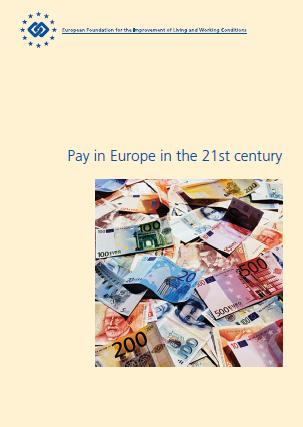Aumayr‑Pintar, C.; Cabrita, J.; Fernández‑Macías, E. & Vacas‑Soriano, C. (2014) “Pay in Europe in the 21st century“, European Foundation for the Improvement of Living and Working Conditions, Eurofound Research Project, Publications Office of the European Union, Luxembourg: Ιούνιος.
The issue of wages has attracted particular attention at European level since the onset of the economic crisis. Changes in economic governance, notably within the European semester, have prompted discussions on wage‑setting mechanisms. While, overall, wage‑bargaining regimes have remained relatively stable over time in many countries, the most substantial changes were seen in Member States facing more difficult economic circumstances. This report provides comparative time series on wage‑bargaining outcomes across the EU Member States and Norway, discussing pay developments against the background of different wage‑bargaining regimes and looks into the link between pay and productivity developments. It also investigates the different systems and levels of minimum wages in Europe at present, carrying out an accounting exercise through a hypothetical scenario of a minimum wage set at 60% of the median national wage (with some alternative scenarios as well for comparison) in order to benchmark and evaluate minimum wage levels and systems in Europe, and to discuss the possibilities and difficulties of coordination in this matter. An executive summary is also available.
Σχετικές αναρτήσεις:
- Wren-Lewis, S. (2014) “Real wages, monetary policy and innovation“, Mainly Macro Blog, 22 Ιουνίου.
- Ozlem Onaran, Ο. & Stockhammer, Ε. (2014) “Why The Recovery Needs Wage Growth“, Social Europe Journal, 21 Μαΐου.
- Onaran, O. & Stockhammer, E. (2014) “Raising wages should be a key component of economic growth strategies across the world“, LSE EUROPP, 07 Μαΐου.




